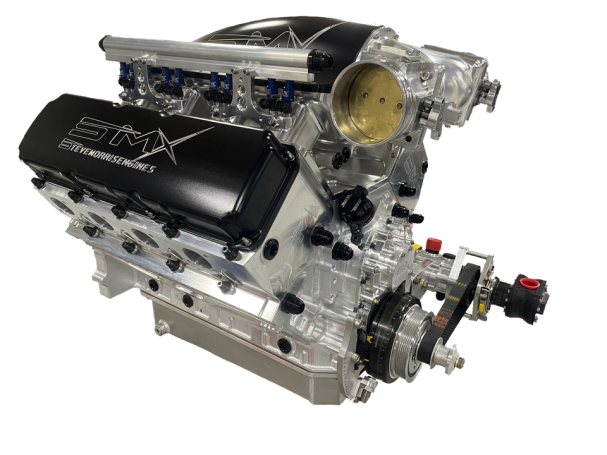A Complete Guide to Selecting the Right Engine for Your Task
Choosing the appropriate engine for your project is an essential decision that can considerably influence its total success. It is imperative to thoroughly define your task needs, examine efficiency needs, and take into consideration user-friendliness alongside other necessary aspects. Furthermore, understanding the community assistance available and looking at expense effects can further refine your selection. Each of these aspects plays an essential role in making sure that your chosen engine not only fulfills instant objectives yet additionally straightens with long-term goals. As we check out these considerations, you might find that the nuances of each element disclose even more than originally expected.
Specify Your Project Needs
Defining your task requires is an important action in selecting the proper engine for successful execution. An extensive understanding of your task's objectives will direct you in recognizing the attributes and capabilities called for from an engine. Begin by describing the scope of your job, consisting of the wanted capability, target audience, and the particular results you intend to accomplish.
Next, think about the technical requirements that align with your project goals. This consists of examining the compatibility of the engine with existing systems, as well as the programming languages and structures that will be utilized. Additionally, examine the degree of scalability needed to accommodate future development or adjustments in need.
Spending plan restraints likewise play an essential function in defining your project requires. Establish a clear economic structure to assist your decision-making procedure, making sure that the engine picked fits within your spending plan while giving the essential capability.
Evaluate Efficiency Requirements

Engines that sustain horizontal scaling are frequently preferable for bigger applications. Furthermore, assess the engine's efficiency under various problems, such as peak use situations, to ensure it fulfills your integrity criteria.
Think About Simplicity of Usage
While technological specs are essential, the simplicity of use of an engine can significantly affect the growth process and general project success. An user-friendly user interface, clear documents, and structured process can significantly reduce the understanding contour for designers, enabling them to concentrate on creativity and analytic instead of facing complex tools.
When reviewing an engine's ease of usage, consider the onboarding experience. A well-structured introduction, complete with tutorials and example tasks, can help with a smoother change for brand-new individuals. In addition, the quality and comprehensiveness of the engine's paperwork play a vital role; thorough overviews and API references can encourage developers to troubleshoot and implement functions effectively.
An additional Learn More Here facet to take into consideration is the engine's customization abilities. An engine that enables very easy adjustments can be a lot more user-friendly, as programmers can customize it to fit their particular requirements without substantial hassle. Assess the process assimilation with systems and tools you currently make use of. A natural environment can improve efficiency and minimize friction throughout the advancement procedure. Ultimately, choosing an engine that focuses on convenience of use can result in a more efficient and enjoyable growth experience.
Assess Area and Support
The stamina of an engine's area and support network can significantly influence a programmer's experience and success. A lively community commonly shows a wealth of common understanding, sources, and repairing assistance that can improve your job's advancement process. When evaluating an engine, take into consideration the size and activity degree of its community. Larger communities usually provide much more discussion forums, content tutorials, and third-party plugins, enabling designers to discover remedies much more efficiently.
Additionally, review the schedule of main assistance networks. Trusted documents, receptive consumer assistance, and normal updates are crucial for dealing with technical issues and maintaining your job on the right track. Engines For Africa. Energetic neighborhoods also foster cooperation, providing possibilities for networking and feedback, which can be vital, specifically for small teams or independent developers
Additionally, examine the presence of community-run events, such as meetups or hackathons. These celebrations can enhance your understanding of the engine while attaching you with knowledgeable users and prospective partners. In summary, a durable area and assistance system not just streamline development but also create an atmosphere for learning and development, ultimately boosting the chance of your job's success.
Contrast Price and Licensing Options
Spending plan factors to consider play an important function in selecting the ideal engine for your job, as the price and licensing options can substantially affect both temporary expenditures and lasting viability. Engines For Africa. Different engines offer varying rates structures, which can consist of single acquisition charges, subscription versions, or revenue-sharing agreements based on your project's earnings

Accrediting choices also differ dramatically. Some engines are open-source, providing flexibility and community-driven assistance, while others may need proprietary licenses that limit use and distribution. Understanding the effects of each licensing design is vital, as it influences possession rights, future scalability, and possible lawful obligations.
Conclusion
To conclude, choosing the suitable engine for a project necessitates a detailed examination of defined project needs, performance demands, convenience of usage, neighborhood support, and expense considerations. By methodically resolving these crucial factors, decision-makers can make sure placement with both existing and future job demands. A well-informed option eventually enhances the chance of task success, enabling effective resource allotment and taking full advantage of possible results within the specified monetary restraints.
Selecting the suitable engine for your task is a crucial choice that can considerably impact its overall success.Defining your task needs is a crucial step in picking the ideal engine for successful execution. An extensive understanding of your job's her response goals will certainly assist you in identifying the features and abilities called for from an engine.Once you have a clear understanding of your project requires, the next step is to examine the efficiency needs of the engine.In conclusion, picking the proper engine for a job requires an extensive evaluation of specified job demands, efficiency needs, ease of usage, area support, and price factors to consider.